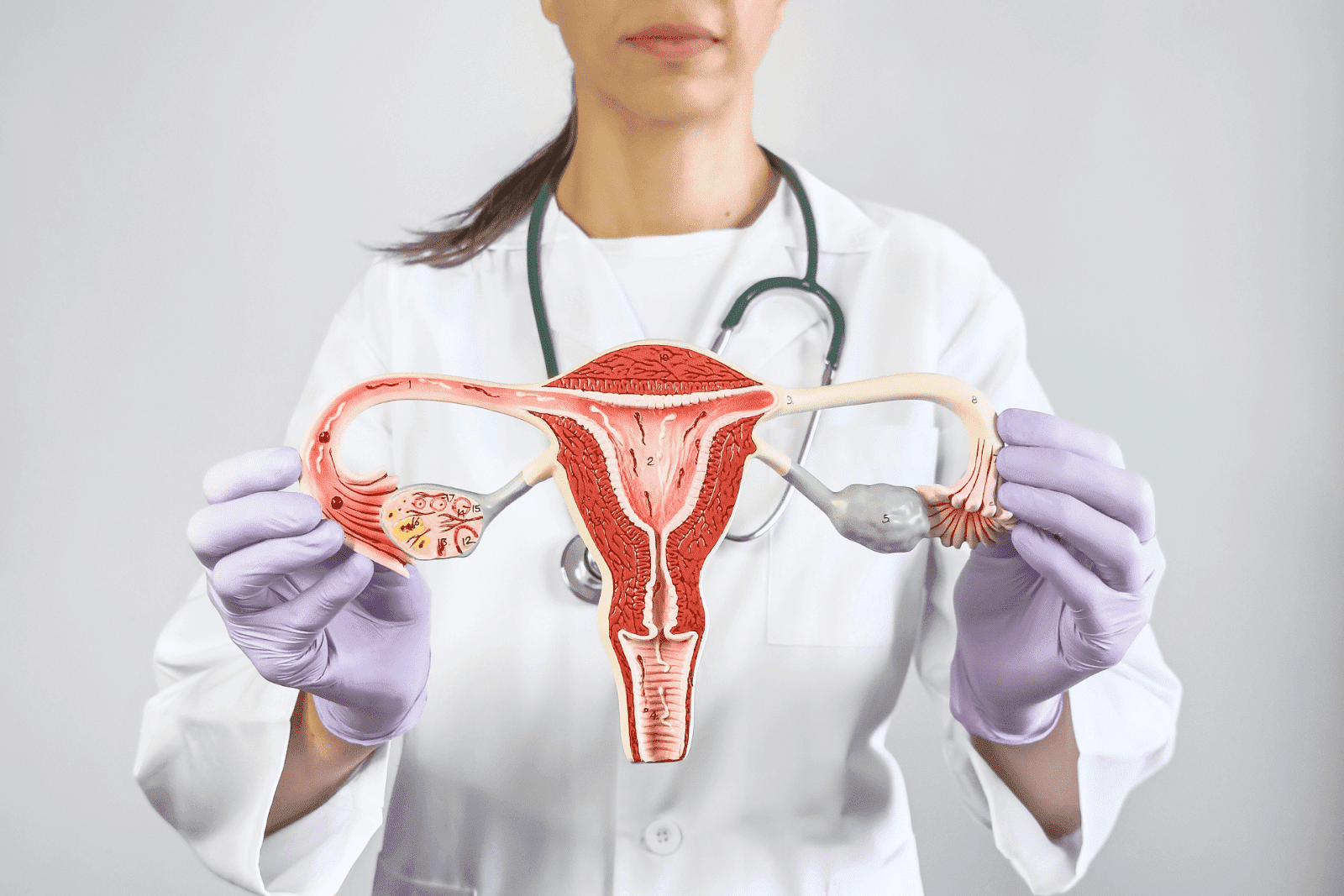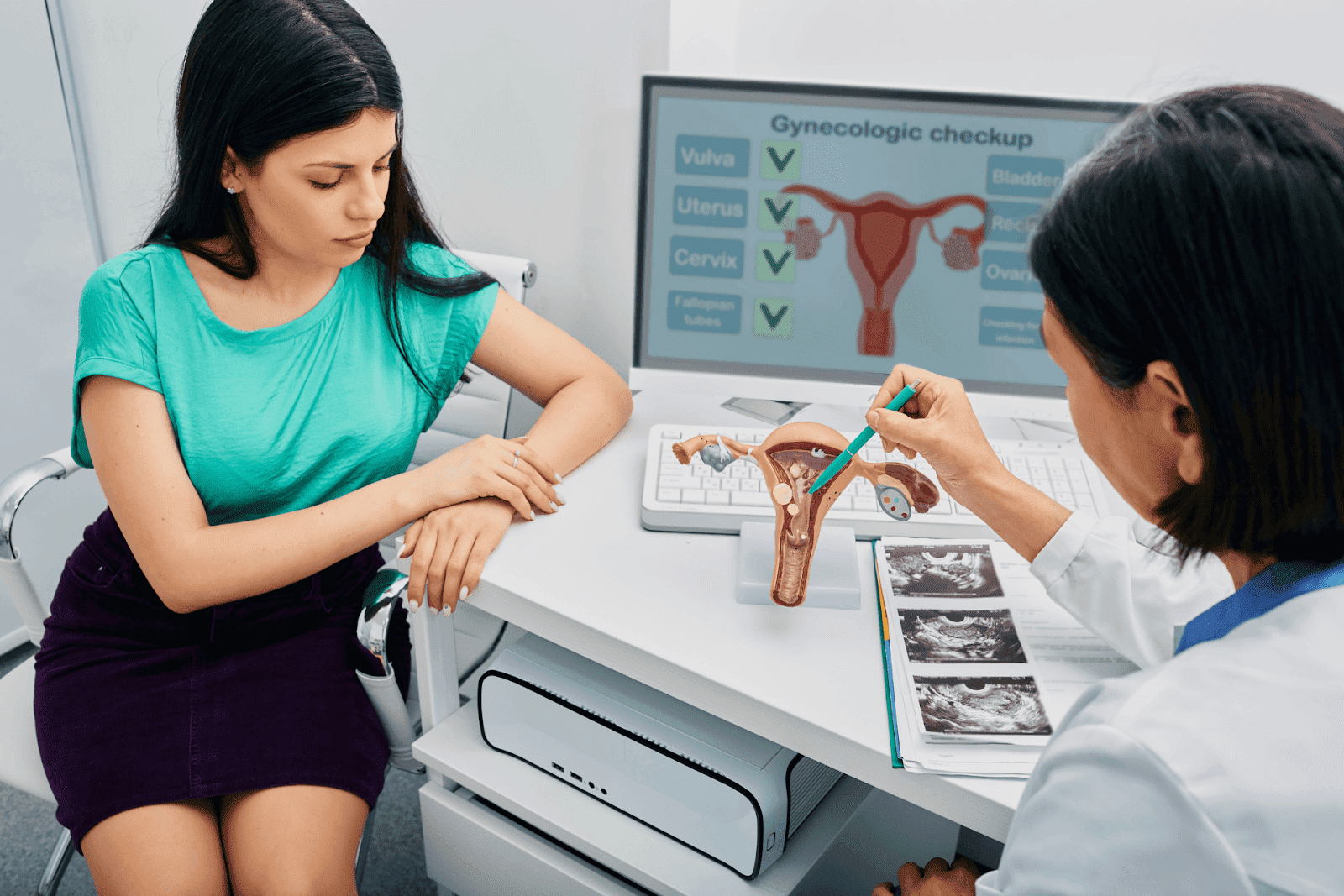GLP-1 for PCOS - How It Helps
Polycystic Ovary Syndrome (PCOS) is a complex hormonal disorder affecting millions of women worldwide. Characterized by irregular menstrual cycles, insulin resistance, and [...]
Read More
Medically reviewed by Alan Lucks | MD, Alan Lucks MDPC Private Practice - New York on October 23rd, 2025.
Up to 70% of women with PCOS have insulin resistance, which drives excess androgen production and creates a cycle of worsening hormonal imbalances that traditional treatments often fail to address.
Semaglutide and liraglutide are the most studied GLP-1 medications for PCOS, typically starting at low doses (0.25mg weekly for semaglutide) and increasing gradually to minimize nausea and digestive side effects.
Clinical studies show GLP-1 therapy can restore regular menstrual cycles in 60-80% of women with PCOS within 3-6 months while promoting 5-15% body weight reduction.
These medications work by slowing gastric emptying, reducing appetite, and improving insulin sensitivity—addressing three core mechanisms that perpetuate PCOS symptoms.
Combining GLP-1 treatment with a low-glycemic diet and 150 minutes of weekly exercise amplifies results, with some women achieving pregnancy rates comparable to those without PCOS.
Polycystic Ovary Syndrome (PCOS) is a complex hormonal disorder affecting millions of women worldwide. Characterized by irregular menstrual cycles, insulin resistance, and sometimes weight gain, PCOS can significantly impact quality of life and long-term health. Recent advances in medical research have identified GLP-1 receptor agonists as a promising option to manage some of the symptoms associated with PCOS.
GLP-1, or glucagon-like peptide-1, is a hormone that plays a key role in regulating blood sugar levels and appetite. Initially used in the treatment of type 2 diabetes, GLP-1-based therapies have shown potential benefits for women with PCOS, especially those struggling with insulin resistance and weight management. This article explores how GLP-1 helps in PCOS, the science behind it, and how telehealth services like Doctronic.ai can support patients seeking modern, accessible care.
PCOS is a multifaceted condition that affects the endocrine system. Women with PCOS often experience symptoms such as irregular periods, excessive hair growth, acne, and difficulty conceiving. One of the core issues in many PCOS cases is insulin resistance, where the body’s cells do not respond effectively to insulin. This can lead to elevated blood sugar levels and increased risk of type 2 diabetes. The hormonal imbalances associated with PCOS can also lead to emotional challenges, including anxiety and depression, as women navigate the physical and psychological impacts of the condition.
Insulin resistance also contributes to weight gain and difficulty losing weight, which further exacerbates PCOS symptoms. Managing PCOS typically involves lifestyle changes, including diet and exercise, and sometimes medications to regulate hormones or improve insulin sensitivity. However, many women find these approaches challenging or insufficient on their own. The journey of managing PCOS is often complicated by societal pressures and the stigma surrounding body image, which can lead to feelings of isolation and frustration. Support groups and counseling can play a vital role in helping women cope with these emotional aspects, providing a safe space to share experiences and strategies for managing the condition.
 The Role of Insulin Resistance in PCOS
The Role of Insulin Resistance in PCOSInsulin resistance is present in up to 70% of women with PCOS, making it a critical target for treatment. When insulin resistance is untreated, it can worsen hormonal imbalances and increase the risk of metabolic complications. Addressing insulin resistance can improve ovulation, reduce androgen levels, and help manage weight, which are all important for improving PCOS symptoms. Furthermore, recent studies have shown that dietary interventions, such as a low-glycemic index diet, can significantly enhance insulin sensitivity and lead to better management of PCOS symptoms. Incorporating whole foods, such as fruits, vegetables, lean proteins, and healthy fats, not only supports metabolic health but also promotes overall well-being.
GLP-1 is a naturally occurring hormone secreted by the intestines in response to food intake. It stimulates insulin secretion, inhibits glucagon release, slows gastric emptying, and promotes feelings of fullness. These effects make GLP-1 receptor agonists a powerful tool for managing blood sugar and appetite.
Medications that mimic GLP-1’s action have been used for years to treat type 2 diabetes and obesity. By enhancing the body’s natural response to glucose and reducing hunger, GLP-1 receptor agonists help patients achieve better metabolic control and weight loss.
Given the role of insulin resistance and weight in PCOS, GLP-1 receptor agonists have become an area of interest for treatment. Studies have demonstrated that these medications can improve insulin sensitivity, promote weight loss, and reduce androgen levels in women with PCOS.
Weight loss achieved through GLP-1 therapy can lead to improved menstrual regularity and ovulation, which are often disrupted in PCOS. Additionally, better insulin control helps reduce the risk of developing type 2 diabetes, a common concern for women with PCOS.
Women with PCOS who use GLP-1 receptor agonists may experience several benefits beyond weight loss and insulin regulation. These include:
Improved Hormonal Balance: GLP-1 therapy can help lower androgen levels, which reduces symptoms like acne and excess hair growth.
Enhanced Fertility: By promoting ovulation, GLP-1 may support women trying to conceive.
Better Cardiovascular Health: Weight loss and improved insulin sensitivity reduce the risk of heart disease, which is elevated in PCOS.
Increased Energy and Wellbeing: Managing blood sugar levels and weight can improve overall quality of life.
It is important to note that GLP-1 therapy should be part of a comprehensive treatment plan that includes lifestyle modifications and regular medical supervision.
With advances in telehealth, getting access to specialized care for PCOS has become easier and more convenient.Doctronic.ai offers affordable telehealth video visits with licensed doctors who can evaluate your symptoms, discuss treatment options including GLP-1 therapy, and provide personalized care from the comfort of your home.
Doctronic.ai stands out by combining AI-powered diagnostics with real doctors available 24/7 across all 50 states. This approach ensures faster, smarter, and more personal care for patients managing chronic conditions like PCOS. The AI doctor synthesizes the latest peer-reviewed medical research to provide comprehensive answers and treatment recommendations, while human doctors oversee care and prescribe medications when appropriate.
Doctronic.ai offers several advantages for women seeking treatment for PCOS, including:
Speed: Get answers and treatment plans in moments without waiting weeks for an appointment.
Expertise: Access the most up-to-date medical knowledge synthesized by AI and validated by doctors.
Convenience: Affordable video visits available anytime, anywhere in the U.S.
Personalized Care: The AI remembers your history and tailors advice to your unique needs.
For women interested in exploring GLP-1 therapy or other treatment options for PCOS, Doctronic.ai provides a modern, accessible way to connect with healthcare professionals and get the care needed to manage this complex condition.
While GLP-1 receptor agonists offer promising benefits for PCOS, they are not suitable for everyone. Patients should undergo a thorough medical evaluation to determine if this therapy is appropriate based on their health history and current condition.
Side effects of GLP-1 medications can include nausea, vomiting, and gastrointestinal discomfort, especially when starting treatment. Close monitoring by a healthcare provider is essential to manage these effects and adjust treatment as needed.
Integrating GLP-1 therapy with lifestyle changes such as a balanced diet, regular exercise, and stress management maximizes the chances of success. Women with PCOS should also continue routine screenings for diabetes, cardiovascular health, and reproductive function.
Consulting with a healthcare provider through telehealth platforms like Doctronic.ai can help patients navigate these complexities with expert guidance and personalized care plans.
 Empowering Women with PCOS Through Innovative Care
Empowering Women with PCOS Through Innovative CarePCOS is a challenging condition that requires a multifaceted approach to treatment. GLP-1 receptor agonists represent an exciting advancement in managing insulin resistance and weight, two critical factors in PCOS symptom control. By improving metabolic health, these therapies can enhance quality of life and reduce long-term health risks.
Thanks to telehealth innovations, women with PCOS can now access expert care more easily than ever. Doctronic.ai combines cutting-edge AI with compassionate medical professionals to deliver fast, smart, and personalized care tailored to each patient’s unique needs.
For anyone navigating PCOS, exploring GLP-1 treatment options with a trusted healthcare provider is a valuable step toward better health and well-being.
Ready to tackle PCOS with the most advanced medical assistance at your fingertips? Experience the future of healthcare with Doctronic, where our AI Doctor provides immediate, personalized guidance based on the latest medical research. Say goodbye to waiting rooms and hello to fast, smart, and personal care that remembers every detail about you. For a seamless journey towards better health, skip the line and talk to an AI Doctor now, for free.
GLP-1 receptor agonists represent a breakthrough approach for PCOS by targeting the underlying insulin resistance that drives hormonal chaos in most affected women. This therapy can normalize periods, reduce male-pattern symptoms, and improve fertility when combined with lifestyle modifications. If you're struggling with irregular cycles, unexplained weight gain, or fertility challenges, Doctronic can help you explore whether this treatment approach is right for your situation.
Polycystic Ovary Syndrome (PCOS) is a complex hormonal disorder affecting millions of women worldwide. Characterized by irregular menstrual cycles, insulin resistance, and [...]
Read More